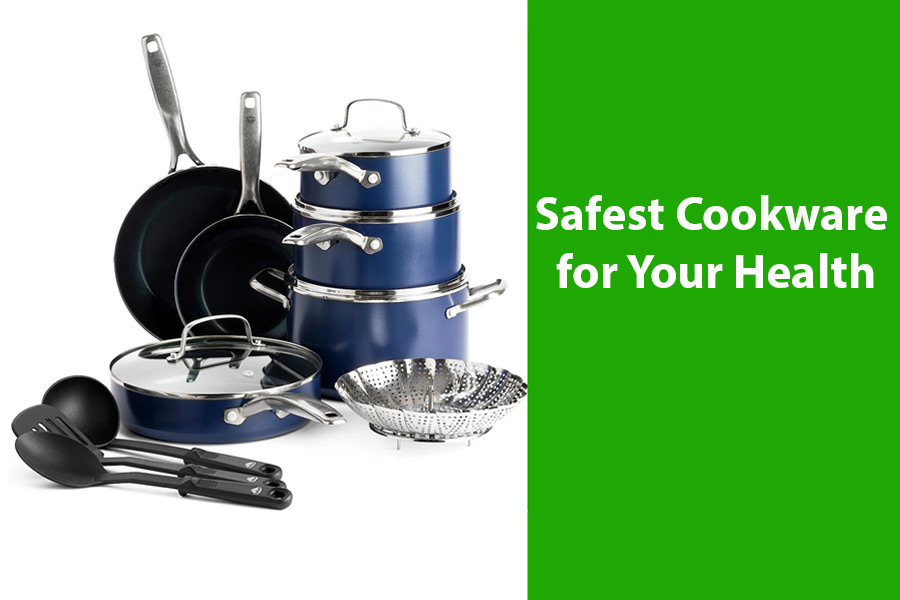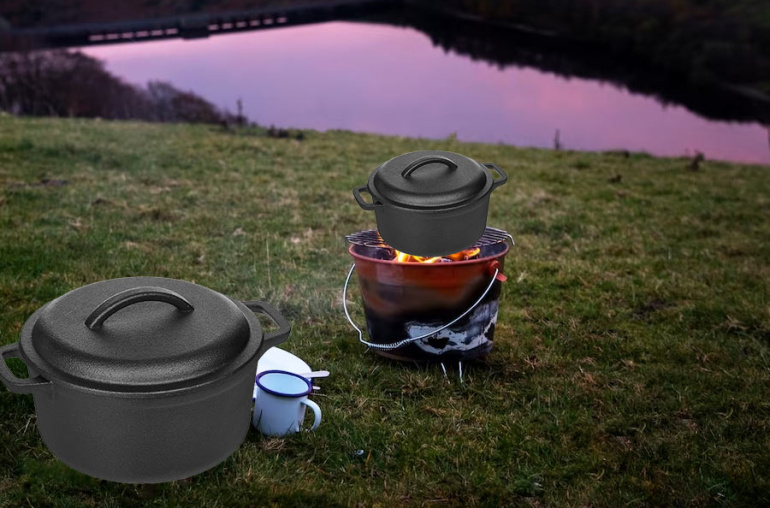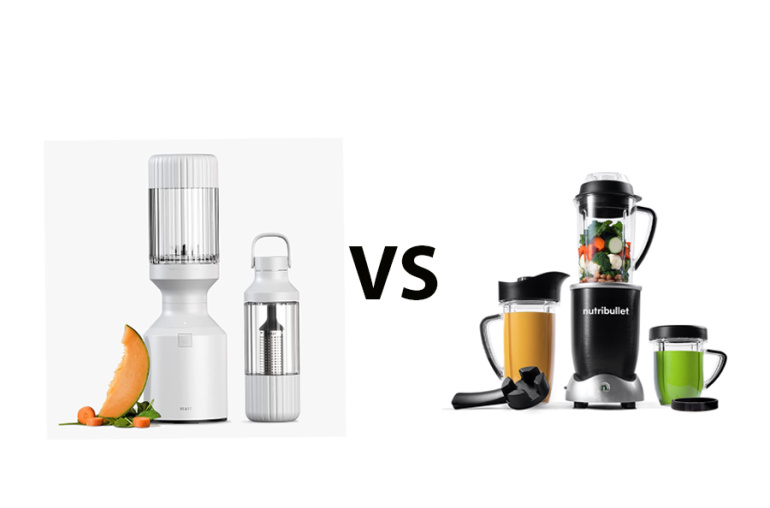In the woke culture, people are more conscious of their health than ever before. To lead a healthy life, you need to start with the type of food you eat, and that includes the type of cookware being used for cooking.
If you are confused about what is the safest cookware for your health, then you will find your answer here. We have provided details on various types of materials used for cookware, along with important safety considerations to choose the right one for your health.
Contents
Understanding the Types of Materials Used for Cookware
Understanding the various materials used in cookware manufacture and their possible health effects is crucial before digging into the technical details of safe cookware.
Non-Stick
Many people use non stick cookware because of its convenience, yet this material has been the topic of debate in recent years. The widespread use of Teflon raises safety concerns because of the hazardous fumes it emits when heated to high degrees, causing a condition known as “polymer fume fever.” Although contemporary non-stick coatings are superior, it is still important to proceed with caution when using them and to prevent overheating.
Stainless Steel
Since it doesn’t corrode or discolor easily, stainless steel is a common material option. Cooking with it is not thought to pose any health risks. But some cheap stainless steel cookware may include traces of metals like nickel and chromium that might seep into meals if the cookware is scratched or poorly made.
Copper
Although copper cookware is great for maintaining an exact temperature, it may be hazardous to your health. Copper becomes poisonous when it dissolves into your diet from acidic foods. Because of this, most copper cookware has a protective layer of metal, often stainless steel or tin, within.
Cast Iron
Cast iron cookware is highly regarded for its efficient heat retention and even heat dispersion. It doesn’t leach any dangerous compounds into food, thus it’s considered safe for cooking. To keep the metal from rusting, however, it must be properly seasoned and maintained.
Ceramic and Glass
Because they do not leach chemicals or metals into food, ceramic and glass cookware are usually considered to be safe options. However, they may not be as sturdy as other choices and may fracture or shatter if handled roughly.
What to Consider for Choosing the Safest Cookware for Your Health?
Now that we know the basics about different types of cookware, we can dive into the qualities that make a few of them safer for your health.
Make sure to avoid PTFE non-stick coatings
Traditional non-stick coatings, such as Teflon, are made using a chemical called perfluorooctanoic acid (PFOA), which has been linked to health issues. While PFOA is being phased out, it is still preferable to use ceramic or newer, PFOA-free non-stick alternatives rather than PTFE-coated cookware.
Check for proper certification
Verify that the cookware you’re considering has the appropriate certifications, such as “FDA-approved,” “PFOA-free,” and “lead-free.” These approvals guarantee that the cookware is safe to use.
Prioritize quality
Spend your money on trusted brands in kitchenware. Low-quality, low-priced cookware may be more prone to release chemicals into food during preparation.
Understand your cooking habits
Make sure the cookware you choose is suitable for the way you often cook and the techniques you use. If you often cook acidic dishes, for instance, you should steer clear of unlined copper cookware to prevent copper leaching.
Avoid making scratches
It is best to avoid using any utensils made of metal on non-stick cookware since doing so might scratch the coating. When scratched, non-stick surfaces may be more likely to release potentially hazardous substances.
Properly season your cast iron
Seasoning the cast iron cookware correctly is essential if you want to use it effectively. The seasoning creates a coating on the surface that is naturally non-stick and protects against corrosion.
Consider the material’s temperature limitations
Every material that can be used to make cookware has a maximum temperature it can withstand. Cast iron is ideal for low and slow cooking at a uniform temperature, whereas stainless steel is best for searing at high heat. Be careful not to overheat non-stick pans, and never heat an empty cookware.
Do regular maintenance
Keeping your cookware in good condition requires regular maintenance and care. Maintain it by cleaning it as directed and replacing any parts that have become damaged or worn.
FAQ
Which material is safest for my health?
Stainless steel, ceramic, and cast iron are some of the safest options for kitchen cookware. There is less of a chance that chemicals or metals may leach out of these materials and into your food.
Is non-stick cookware safe for my health?
If used properly, non-stick cookware has no health risks. To prevent the emission of harmful gases, non-stick pans should not be heated over a certain point. Non-stick coatings that do not include PFOA are safer options.
Is using copper cookware safe for my health?
Lining copper cookware with stainless steel or tin makes it safe to use. Pure copper cookware, on the other hand, may cause health problems by releasing copper into acidic meals.
When should I replace my cookware?
If your cookware shows signs of deterioration that might jeopardize its safety or performance, such as chipping or peeling of coatings, deep scratches on non-stick surfaces, warping, etc., you should consider replacing it.
Conclusion
Thinking about the materials, certifications, and how you typically cook will help you choose the healthiest cookware for your family’s health. Although there is no universally correct answer, it is important to keep in mind that various kinds of cookware provide varying degrees of danger to one’s health.
Key measures in protecting the safety of your cookware include avoiding PTFE non-stick coatings, choosing high-quality cookware, and following regular maintenance methods.
In the long run, making an educated decision can help you eat good food and protect your health for years to come. If you want to achieve your culinary goals while also taking care of your health, remember to look beyond the marketing pitch and misconceptions while shopping for cookware.
I live in New York, United States. I did my graduation the City University of New York. Now I am a housewife. I am passionate about cooking and I also specialize in cookware and kitchen appliances. I have 6 years more of experience with cookware and kitchen appliances product review. If you have any queries about cookware and kitchen appliances you can easily contact us.





